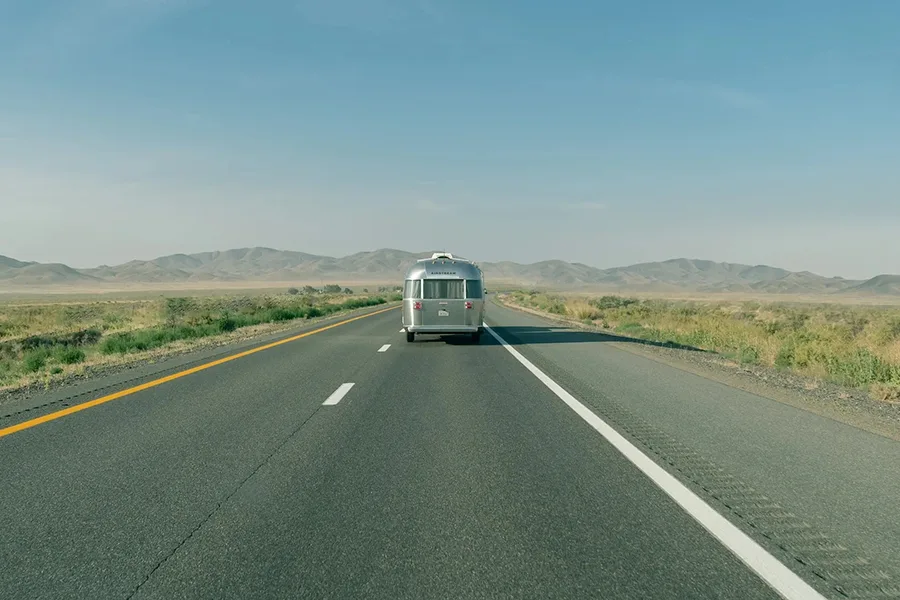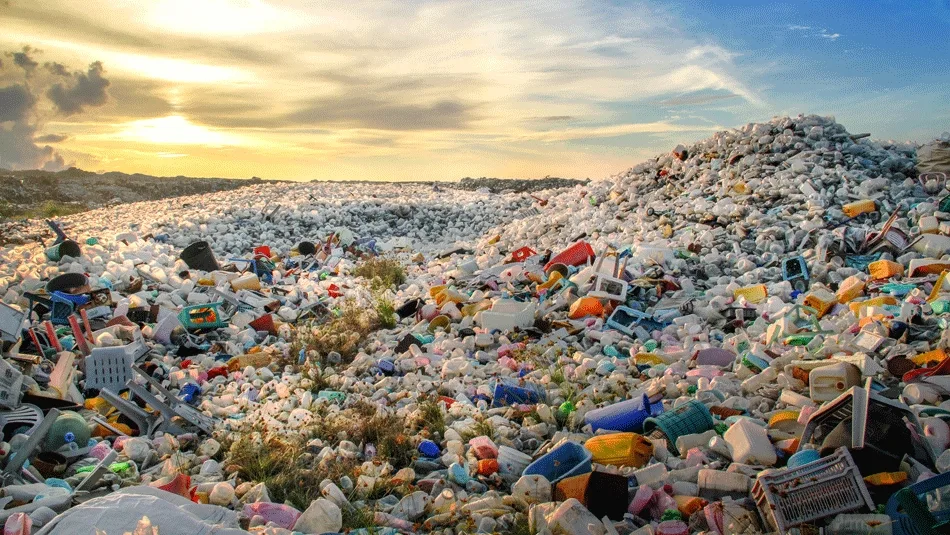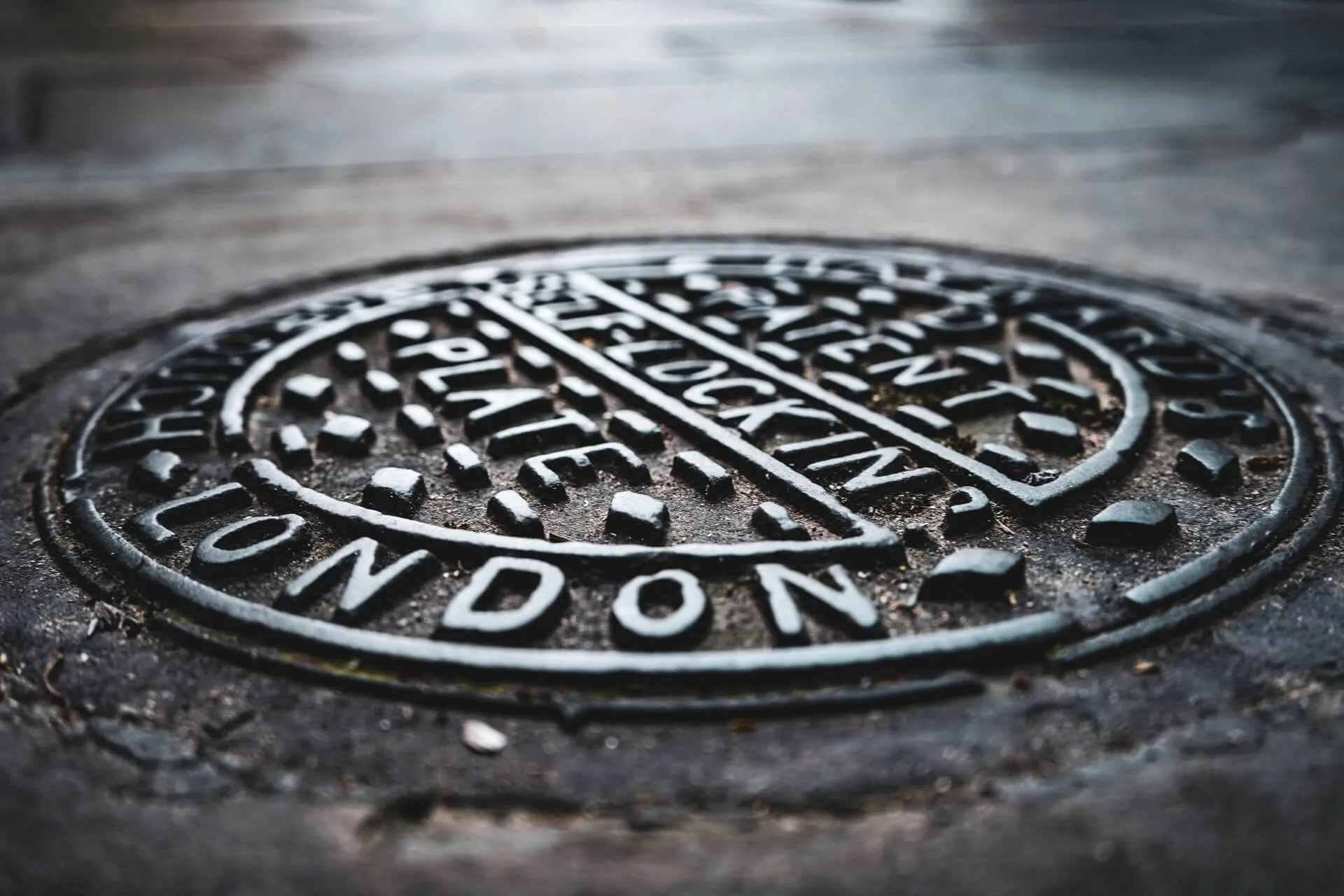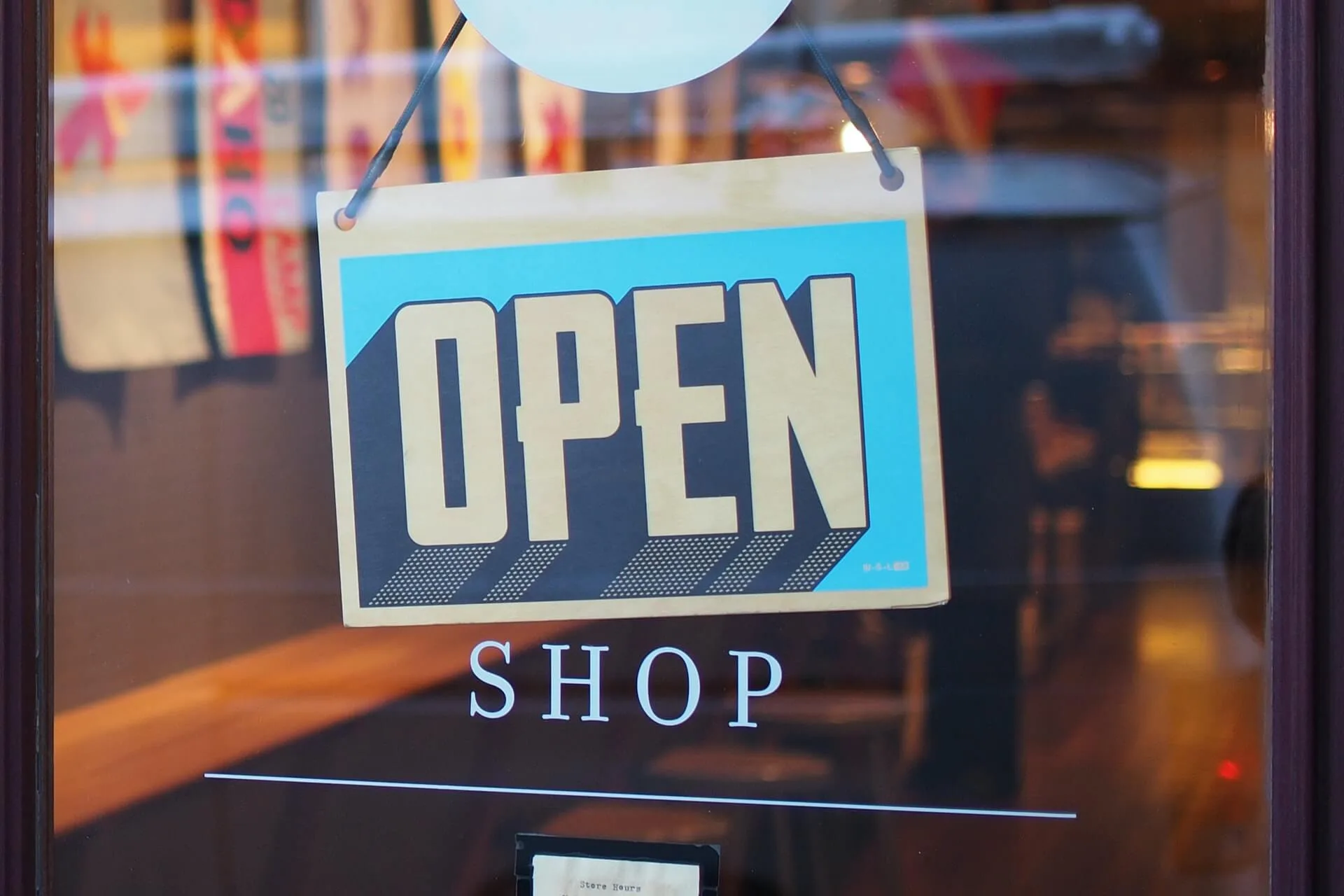Your cart is currently empty!
Tag: environment
-

Improper Cooking Oil and Grease Disposal Leads to Pollution
Proper cooking oil and grease disposal are critical to not only your city’s sewer lines but the overall health of our environment. When sewer pipes become clogged with cooking fats, oils, grease and other items rinsed down the sink and flushed down the toilet, that raw sewage then spills out and contaminates the local environment.
This was just the case recently when a fatberg clogged a sewer line and sent sewage spilling out into Wellington Harbour in New Zealand. “Unfortunately, the blockage caused some wastewater to overflow into the harbor. We encourage members of the public to avoid swimming in the area.” This contamination effects not only us but the local wildlife in the area as well.
Sewage Overflows are Toxic for Humans and Wildlife
Contaminants in the environment can look and smell pretty bad, but their impact goes beyond just aesthetics. Some pollutants resist breakdown and accumulate in the food chain. These pollutants can be consumed or absorbed by fish and wildlife, which in turn may be eaten by us. Chemicals can also get into sediments, impacting large coastal areas, threatening human health, and reducing the economic well-being of regions that depend on a healthy coastal environment (NOAA).
Proper Cooking Oil and Grease Disposal with Grease Hero
Since the inception of the Grease Hero drain guards, we have been on a mission to stop this toxic environmental pollution. We understand the lasting impact sewer overflows have on us, wildlife and our water supply, which is why we continually focus on ways to make disposing of cooking fats, oils and grease quick and easy for people cooking at home.
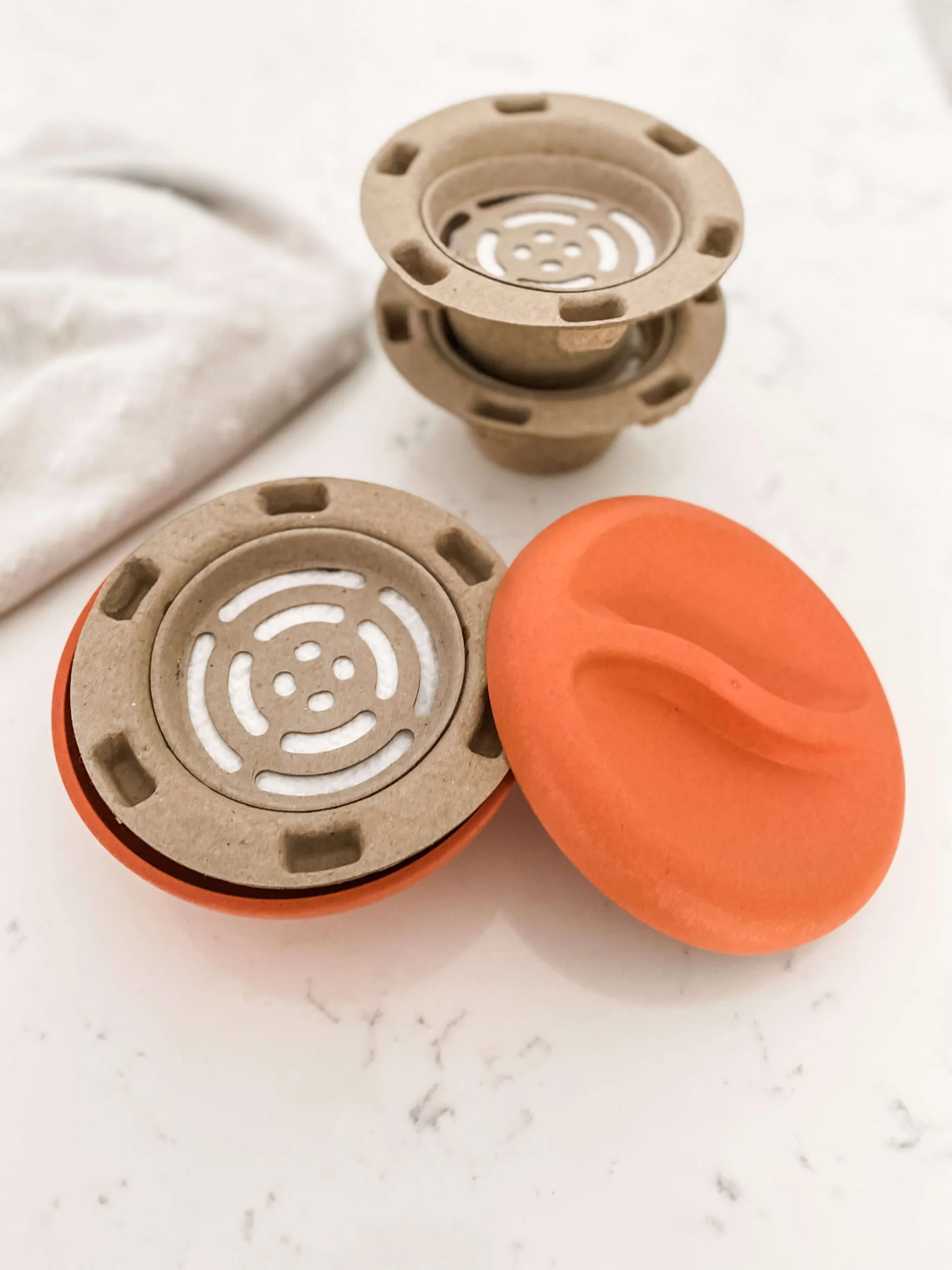 Our environmentally friendly Grease Hero drain guards are a simple solution to proper cooking oil and grease disposal. Simply set the drain guard in your sink’s drain, the counter, or a flat surface and pour your cooking fats, oils and grease directly from the pan into it. Wait one minute for the liquid to completely absorb into the recycled material of the drain guard and then dispose of it with your regular trash or at your local recycling facility.
Our environmentally friendly Grease Hero drain guards are a simple solution to proper cooking oil and grease disposal. Simply set the drain guard in your sink’s drain, the counter, or a flat surface and pour your cooking fats, oils and grease directly from the pan into it. Wait one minute for the liquid to completely absorb into the recycled material of the drain guard and then dispose of it with your regular trash or at your local recycling facility.Recently, we also launched GreaseHero PLUS which is a storage system for Grease Hero drain guards. We understand that not every meal you cook will have enough oil/grease to fill the drain guard and you may want to store it to use again until it is completely full. This is where Grease Hero PLUS comes in. With a lid that tightly attaches to the base, you can store your drain guard without having to worry about any lingering odors in your kitchen. GreaseHero PLUS is made from recycled materials and is dishwasher safe.
Proper cooking oil and grease disposal is not only important for your home and neighborhood, it’s critical for the health of our environment, wildlife and waterways.
____
Join our mission to save the environment. We aim to promote environmental, social and economic benefit, all while prioritizing the environment over our product life cycles… from the initial manufacture using recycled materials until final disposal.
Follow us on Instagram, Facebook, Twitter, LinkedIn and YouTube.
-
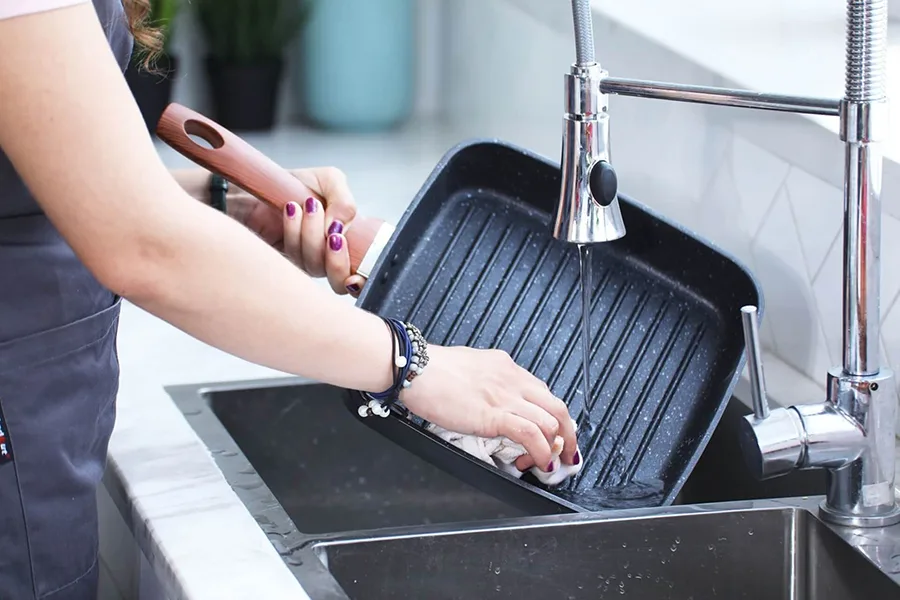
The Greasy Truth About Clogged Pipes
The greasy truth about clogged pipes is that we get them, none of us really like to talk about them and they are preventable. By taking simple actions in our home, we can limit the number of clogs we experience and drastically cut down on those plumbing bills.
Properly Dispose of Cooking Fats, Oils and Grease (Around the holidays and all year round)
Whether it is vegetable oil, bacon grease or turkey drippings they all need to be disposed of properly. When you send a pan of oil or grease down your sink, it doesn’t take long for it to adhere to the sides of your plumbing and accumulate. The oil and grease congeal and lock in food scraps as well. This turns into a hard blockage that restricts the flow of wastewater. When wastewater has nowhere to go it comes back into your home causing major property damage.
Wipe Out Those Mixing Bowls Before Rinsing
That butter, milk, cream and flour should be wiped clean from your mixing bowl before you wash it in the sink. These baking items tend to harden quickly and stick to the inside of your plumbing as well and emit a foul odor.
Depend Less on the Garbage Disposal
Garbage disposals streamline the dish washing process and make things just a little easier. The problem arises when you use yours a bit too frequently. The garbage disposal is a way to get unsightly items out of the kitchen quickly, however it is a major contributor to clogged pipes. The food that is rinsed in the garbage disposal is chopped up and then sent down your plumbing, some food though will get stuck inside your plumbing and cause the pipe diameter to narrow and eventually it becomes completely clogged.
Fatbergs Clog Sewers and Damage Neighborhoods
Entire neighborhoods can become flooded and damaged by a fatberg in the sewer line. Fatbergs in the sewer network grow very rapidly and eventually end up blocking entire portions of the sewer network.
They grow so fast because that one pan of oil or grease you rinsed down your sink, met up with other oil and grease your neighbors rinsed down their sinks. You can see how the issue grows exponentially. Once all of this fats, oils and grease meet up with food particles, wet wipes and other items flushed, it becomes hard as concrete and a major problem for sewer lines and water companies. Once a fatberg has blocked a section of a sewer line in your neighborhood, wastewater then gets pushed upward and flows out of drains and manholes into your neighborhood, homes, and the environment.
Put an End to Clogged Pipes with Grease Hero
Grease Hero is designed to be placed into the top of your kitchen sink drain, so you can quickly and easily pour the used cooking grease into it and then promptly dispose of it. It’s designed with recyclable materials to absorb the oil and grease waste and can be thrown out with your regular garbage. See Grease Hero in action on our YouTube channel. This one easy change in your kitchen cleaning routine will save you money from costly plumbing repairs, the city from expensive sewer damage, and our environment from deadly contamination.
____
Join our mission to save the environment. We aim to promote environmental, social and economic benefit, all while prioritizing the environment over our product life cycles… from the initial manufacture using recycled materials until final disposal.
Follow us on Instagram, Facebook, Twitter, LinkedIn and YouTube.
-
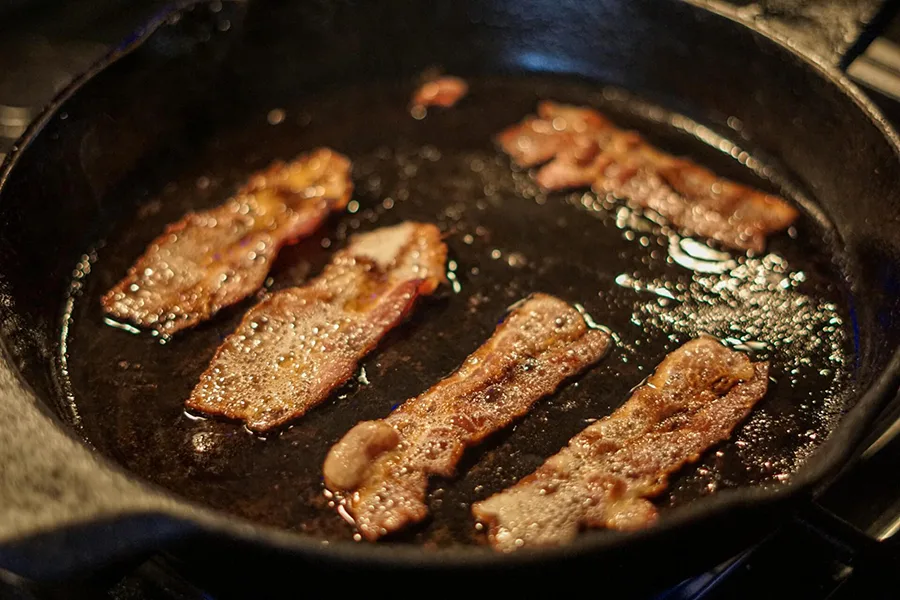
How to Dispose of Bacon Grease
The aroma and sizzling sound of bacon cooking on the stove top in the morning is met with both excitement and hunger. Nothing quite compares to that crispy piece of bacon with your meal—whether it’s next to a pile of scrambled eggs or on top of a burger, there is no substitute. While we could go on and on about the delicious flavor of bacon, there is one thing about bacon that stumps many people—how to dispose of the leftover fat/grease after cooking it.
Never Dispose of Bacon Grease Down the Sink
Simply put, bacon grease should never get rinsed down the sink drain—not the kitchen sink, bathroom sink, or laundry room sink, no sink, ever. While bacon is a great component of a meal, the grease it leaves behind it a nightmare for your plumbing. When bacon grease gets rinsed down the sink, it mixes with cooler water and immediately begins to congeal (harden) and cling to the inside of your plumbing. In time, you will notice a foul odor coming from the sink because the congealed grease continues to collect more and more food particles.
While the majority of bacon grease will stick to your plumbing, some of it will inevitably make its way into your local sewer system where it will combine with other households cooking fats, oils and grease. For a moment, stop and imagine that your entire neighborhood sends pans of bacon grease down the sink, that adds up to a lot of grease. This grease meets in the sewers system and begins to form large pipe clogging culprits, commonly referred to as ‘fatbergs’. These masses are hard as concrete and grow rapidly in city sewers. To date, the largest fatberg uncovered was in London in 2017 and it weighed in at 130 tons and 250 meters long.
Once a fatberg has blocked a section of a sewer line, wastewater then gets pushed upward and flows out of drains and manholes into local neighborhoods, homes, and the environment. Right now, you are probably thinking “what about my home?” well this raw sewage flows out of sewer lines and can end up in your home. Insurance doesn’t always cover this mess either, which means that it could be an expensive problem to remedy.
As you can see, this popular food item can cause chaos in your home if not disposed of properly.
Responsibly Dispose of Bacon Grease with GreaseHero
GreaseHero drain guards are designed to be placed into the top of your kitchen drain or on your countertop. You can quickly and easily pour the used cooking fats, oils or grease into it, and then promptly dispose of the entire drain guard, instead of rinsing these harmful contaminants down the kitchen sink.
Our GreaseHero drain guard is made with recyclable materials to absorb the fats, oils and grease and can be thrown out with your regular garbage. Watch one in action on our YouTube channel.
We recently introduced GreaseHero PLUS to our product lineup for those meals where you don’t have enough used cooking oil/grease to fill and entire drain guard. GreaseHero PLUS is a self-contained storage system for our drain guards in which you can securely store your GreaseHero drain guard until it is ready to be tossed out or recycled. With a lid that tightly attaches to the base, you do not have to worry about any lingering odors in your kitchen. GreaseHero PLUS is made from recycled materials and is dishwasher safe. Learn more about GreaseHero PLUS.
____
Join our mission to save the environment. We aim to promote environmental, social and economic benefit, all while prioritizing the environment over our product life cycles… from the initial manufacture using recycled materials until final disposal.
Follow us on Instagram, Facebook, Twitter, LinkedIn and YouTube.
-
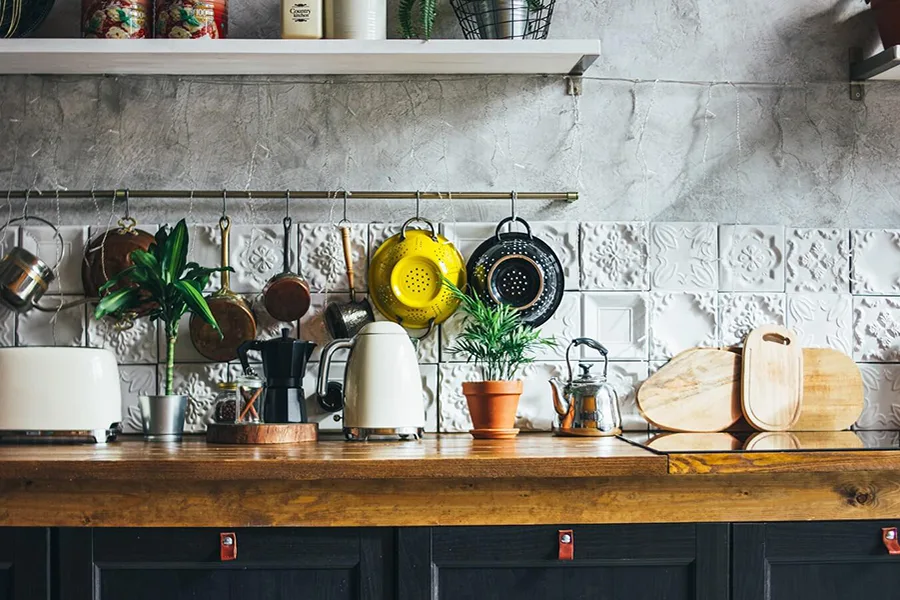
4 Easy Ways to Make Your Kitchen Eco Friendly
Making your kitchen eco friendly isn’t as hard as you might think. We all want to live in a more eco friendly home, yet making the switch can be intimidating. If you start with small steps and make those a habit, it becomes routine, and pretty soon you are ready to make additional changes. Just like with changing anything in your life, start small and work your way up to be successful.
Ditch the Plastic
We all know that plastic is not great for the environment. It does not easily break down and many plastic kitchen items (i.e. thin plastic grocery bags) cannot easily be recycled. Some states have started banning plastic bags and straws in stores and restaurant to combat the growing plastic pollution problem.
Now glance around your kitchen and spot the plastic items… Sandwich bags, saran wrap, snack pouches, bags, straws, plates, cups, bowls, disposable silverware. Today, there are eco friendly alternatives to these common kitchen items. When they start to wear out, recycle the item and then make the conscious decision to purchase an environmentally friendly alternative to replace it.
Choose Cleaning Agents Made with Natural Ingredients
Many cleaning agents are made with chemicals that most of us cannot pronounce. Just like with packaged food, if you cannot easily pronounce the ingredients, it’s time to find an alternative. There are many alternative cleaning agents that use natural ingredients. With a cleaner that uses natural ingredients you can rest assured that it is not harmful to children and pets as well.
You can even take this one step further and make your own cleaner with ingredients you already have around your home. A quick online search will show you how simple making your own cleaner really is.
Buy Food from Local Farmers
Shop local and support your local farmers. An eco friendly kitchen also includes the food that you keep in it. When you shop for season fruits and vegetables from local farmers you help mitigate food transportation costs and pollution.
You can find local produce at Farmer’s Markets as well as in your local grocery stores.
Dispose of Cooking Fats, Oils and Grease Properly
You can’t have an eco friendly kitchen if you have sewage backing up into your sink. We know that picturing that scenario isn’t fun but that’s the truth of the matter when it comes to plumbing caused with cooking fats, oils and grease. Stop rinsing cooking than pan of bacon grease or stir fry oil down the sink. Instead, reach for a Grease Hero drain guard.
Grease Hero is designed to be placed into the top of your kitchen sink drain, so you can quickly and easily pour used cooking fats, oils and grease into it and then promptly dispose of it. It’s designed with recyclable materials to absorb the oil and grease waste and can be thrown out with your regular garbage. See Grease Hero in action on our YouTube channel. This one easy change in your kitchen cleaning routine will save you money from costly plumbing repairs, the city from expensive sewer damage, and our environment from deadly contamination.
These small changes to a more eco friendly kitchen make a difference in your home and in the health of our planet.
____
Join our mission to save the environment. We aim to promote environmental, social and economic benefit, all while prioritizing the environment over our product life cycles… from the initial manufacture using recycled materials until final disposal.
Follow us on Instagram, Facebook, Twitter, LinkedIn and YouTube.
-

RV Travel Heats Up for Another Summer
Family RV travel revs up again this summer as temperatures rise and the school year ends.
Family road trips are on the horizon. RV sales increased dramatically in 2020, which means that more families will hit the road this summer as well. “While the travel industry has seen vacation hotspots closed or restricted, rentals and sales for recreational vehicles and camper vans have revved up.” (Fox Business) Much of the growth within the RV sector has come from younger families and millennials wanting to get out of town and experience the great outdoors.
“We didn’t anticipate this turn being as strong as it has been. People don’t want to fly, they don’t want to stay in a hotel. In an RV, you can cook your own meals and sleep in your own bed.” – RV Industry Association President, Craig Kirby (Travel + Leisure).
Benefits of RV Travel
The benefits of traveling in your own RV are numerous and that is what has drawn in new RV owners. Traveling in an RV gives you:
- Schedule Flexibility
- A Way to Connect with Nature
- Your Entire Family Can Travel Together (Including Pets!)
- You Can Bring Anything and Everything You Need
- You Get to Cook Your Own Meals
- Social Distancing Made Easy
- Avoid Costly Hotel and Airline Fees
Hitting the road with your family always creates memories that last a lifetime. It’s fun to break away from routine and live a more minimalist lifestyle.
GreaseHero in Your RV
Whether you own an RV or rent one, you always want to make sure that you take care of it. No one wants to deal with a plumbing issue in an RV.
When it comes to cooking in an RV, space is limited. While you might have room to hide a grease jar at home, you certainly won’t have room for one in a small RV kitchen. GreaseHero drain guards are an excellent way to dispose of your cooking oil and grease in an RV. GreaseHero is made of recycled materials and is an easy way to responsibly dispose of all leftover fats, oils and grease (i.e. bacon grease). You simply pour in the oil/grease directly from your pan into the GreaseHero drain guard. You can then dispose of the drain guard with your regular trash, eliminating the need to store the unsightly and often foul-smelling mess.
Stock up on GreaseHero Drain Guards before you hit the road this summer for your RV adventure.
____
Join our mission to save the environment. We aim to promote environmental, social and economic benefit, all while prioritizing the environment over our product life cycles… from the initial manufacture using recycled materials until final disposal.
Follow us on Instagram, Facebook, Twitter, LinkedIn and YouTube.
-

The Dirty Details on Paper Towels
Single use paper towels and products are surely convenient, but they come at a heavy cost — to our environment and to our pocketbooks.
Did you know that every day more than 51,000 trees are cut down to support North America’s paper towel habit? Or that the paper industry in general consumes more water than any other single industry on Earth?
REASONS TO PASS ON PAPER
- To make one ton of paper towels 17 trees and 20,000 gallons of water are polluted.
- Globally, discarded paper towels result in 254 million tons of paper towel trash every year.
- If just 50% of the U.S. population uses 3 paper napkins a day, that totals 450,000,000 napkins for 1 day—or more than 164 billion per year.
- If every household in the U.S. used just one less 70-sheet roll of paper towels, that would save 544,000 trees each year.
- Worldwide the pulp and paper industry is the fifth largest consumer of energy, accounting for 4% of all the world’s energy use.
- Over 60% of the roughly 17 billion cubic feet of timber harvested worldwide each year is used for paper and pulp.
- The paper industry uses more water to produce a ton of product than any other industry.
- Discarded paper is a major component of many landfill sites, accounting for about 35% by weight of municipal solid waste.
- Pulp and paper is the third largest industrial polluter to air, water and land in both Canada and the United States, and releases well over 100 million kg of toxic pollution each year.
Facts and figures like these help highlight the costs of our dependence on a product that’s used once and then tossed. It’s alarming, but what can we do? After all, we’re just one person. But I suspect this may be exactly the kind of attitude that makes a bad problem worse. The kind of mindset that says, “Eh, no matter what I do or don’t do, it’s not going to have an impact. After all, I’m just one person.”
As it turns out, there’s a lot we can do to help conserve resources like trees and water, especially when we’re talking about paper towel and napkin usage. When many of us commit to a few small, conscious choices, it’s amazing the difference we can make. And it doesn’t have to be particularly hard or inconvenient!
GOOD PRACTICES
Teach your kids to minimize usage and to limit to one paper towel, whether at home or in public.
Did you know that used paper towels, though hard to recycle, can be composted? Just make sure they are the unbleached, chlorine-free variety and that they haven’t been contaminated with any chemicals that could disrupt your compost.
Of course, using towels and tissues made from recycled paper also helps conserve precious resources.
BETTER PRACTICES
Because electric hand dryers save trees and create less waste than paper towels, you may have wondered whether they were more Earth-friendly than using a paper towel. Well, you guessed right: there’s evidence that they are at least a little more environmentally friendly about 95% of the time. So when your choice is between paper or air to dry your hands, air is almost always the most Earth-friendly choice.
THE BEST PRACTICE
The best choice of all for today’s conscious consumers are towels and napkins made from high-quality, quick-drying microfiber. A good-quality microfiber is much more Earth-friendly than paper, and even offers a number of benefits over reusable cloth towels and napkins:
- It’s more absorbent.
- It dries more quickly.
- It’s extremely soft on the skin.
- It’s durable and resists pilling.
Additionally, a family of four can easily spend $650 – $1,000 on paper towels over the course of five years! Reusable towels and napkins are an easy zero waste kitchen swap to make that will save you from having to buy package after package of the single-use paper products.
-

Grease Hero is Now on Pinterest
Grease Hero is on Pinterest! We know you love Pinterest and are thrilled that we can now connect with you there as well. (Here is the link to our Pinterest page.)
What is Pinterest?
From Pinterest:
Pinterest is a visual discovery engine for finding ideas like recipes, home, and style inspiration, and more.
With billions of Pins on Pinterest, you’ll always find ideas to spark inspiration. When you discover Pins you love, save them to boards to keep your ideas organized and easy to find. You can also create Pins to share your ideas with other people on Pinterest.
Grease Hero on Pinterest
With our new Pinterest page, you can expect to receive all of our Grease Hero news and updates as well as home and kitchen hacks that make your life easier. We all appreciate a good life hack and we are excited to share our favorites with you. When you head to our Pinterest page be sure to hit that “Follow” button – and the “Share” one too, so that you can share Grease Hero with your friends.
Grease Hero Social Media Outlets
While we are brand new to Pinterest, we are on a number of other social media sites and would love to connect with you! Find us on:
- TikTok. We are on TikTok and recently had a video hit 1 million views! (Link to our TikTok account.)
- Instagram. Link to our Instagram profile.
- Facebook. Link to our Facebook page.
- Twitter. Link to our Twitter account.
- LinkedIn. Link to our LinkedIn business page.
- YouTube. Link to our YouTube channel.
About Grease Hero
Grease Hero is a company focused on keeping cooking fats, oils and grease from the environment. At our core, we are on an environmental mission to protect our ocean and fresh water supplies from pollution. Our company is headquartered in Hawaii, and we understand the importance of protecting and taking care of our natural resources for us and generations to come.
We have to main products, Grease Hero drain guards and Grease Hero PLUS.
Grease Hero Drain Guards: Grease Hero drain guards are designed to be placed into the top of your kitchen sink drain, so you can quickly and easily pour the used cooking fats, oils and grease into it and then promptly dispose of the entire drain guard. It’s designed with recyclable materials to absorb the oil/grease waste and can be thrown out with your regular garbage or upcycled at your city’s recycling facility.
Grease Hero PLUS: Grease Hero PLUS is a self-contained storage system for our drain guards in which you can securely store your Grease Hero drain guard until it is ready to be tossed out with your trash or recycled. With a lid that tightly attaches to the base, you do not have to worry about any lingering odors in your kitchen. Grease Hero PLUS is made from recycled materials and is dishwasher safe.
Now let’s get pinning!
____
Join our mission to save the environment. We aim to promote environmental, social and economic benefit, all while prioritizing the environment over our product life cycles… from the initial manufacture using recycled materials until final disposal.
-

Stopping Fatbergs from Forming in City Sewers
Fatbergs are quite literally a thing of nightmares. Stopping fatbergs is imperative.
Fatbergs are mounds of congealed cooking fats, oils and grease that collect items such as wet wipes and other non-flushable items that get sent into the sewer network, to form huge blockages that restrict the flow of raw sewage—thus, sending it back up into homes, neighborhoods, and the environment through sewer overflows. These blockages become hard as concrete and frequently need to be removed by hand. The sheer mention of fatbergs will send a chill down any sanitation worker’s spine.
“A fatberg smells like rotting meat mixed with the odor of a smelly toilet,” said said Alex Saunders, sewer network manager at Thames Water. (BBC)
Stopping Fatbergs Before They Form
In order to reduce the size and frequency of fatbergs in city sewer lines, we have to start at the source—kitchens. Both residential and commercial kitchens send copious amounts of cooking fats, oils and grease down the sink and into the sewer.
Think of it this way, if you send a pan of grease down the sink after making breakfast and your neighbors all do the same, individually you might not be sending a lot but together there is a great deal of grease making its way into your neighborhood sewer line. This grease coatings the inside of the sewer line, thus restricting the flow of raw sewage. Eventually the line, and your plumbing, will become completely clogged with a fatberg and you will have raw sewage spilling out into homes, the neighborhood and environment.
If we all make the conscious decision to stop rinsing cooking oil and grease, no matter how much, we can work at stopping fatbergs from forming.
@greasehero Never pour cooking oil and grease down the sink. Fatbergs cause sewer overflows into homes + environment. Grab a Grease Hero drain guard. 🌿 #greasehero #fatbergs #cookingathometiktoktv #cleaningtiktok #bacongrease #foryou
♬ Spooky, quiet, scary atmosphere piano songs – Skittlegirl Sound
Fatbergs Are Hard + Expensive to Remove
Fatbergs are hard to remove and it’s expensive too. Most fatbergs must be removed by hand since they are as hard as concrete. A special water jet is used to break the fatberg up into smaller pieces and then those pieces are removed from the pipe by manual excavation and powerful vacuumation tanker units.
Thames Water in London spends over £1m ($1.4 million) a month removing fatbergs from across their network.
New York City spends approximately $20 million annually to clear and repair damage from fatbergs. (Water & Wastes Digest)
Stopping Fatbergs with Grease Hero
One simple way to help stop fatbergs from forming is to properly dispose of your cooking fats, oils and grease after cooking a meal. Never rinse them down the kitchen sink drain. Another easy way to make an impact, is to be mindful of what you flush down the toilet.
Grease Hero is a convenient and hassle-free way of disposing of cooking fats, oils and grease after cooking a meal. The environmentally friendly drain guard is made of recycled materials and quickly absorbs the fats, oils and grease that you pour into it directly from your cooking pan. You then simply dispose of the entire drain guard into your trash or upcycle it at your city’s recycling facility. This keeps that harmful fats, oils and grease contaminants out of your plumbing, city sewers and prevents sewer overflows into the environment.
____
Join our mission to save the environment. We aim to promote environmental, social and economic benefit, all while prioritizing the environment over our product life cycles… from the initial manufacture using recycled materials until final disposal.
Follow us on Instagram, Facebook, Twitter, TikTok, LinkedIn and YouTube.
-

Grease Hero is Now on Faire
We are excited to share that Grease Hero is now on Faire. It’s an online wholesale marketplace for small independent stores across the United States, Canada, Europe and beyond to connect with entrepreneurs. Now more than ever, consumers are choosing to support local shops over big-box stores.
What is Faire?
“Our mission is to empower independent entrepreneurs to chase their dreams. By simplifying the wholesale buying process and bringing together independent brands and retailers from around the world, we strive to level the playing field for small businesses everywhere.”
There are millions of thriving small businesses in North America and Europe alone, who collectively represent a $2T market. With our global community and the power of technology, Faire is helping fuel the growth of entrepreneurs everywhere.
Interested in becoming a Grease Hero vendor? Visit us on Faire: https://greasehero.faire.com
About Grease Hero
Grease Hero is a company focused on keeping cooking fats, oils and grease from the environment. At our core, we are on an environmental mission to protect our ocean and fresh water supplies from pollution. Our company is headquartered in Hawaii, and we understand the importance of protecting and taking care of our natural resources for us and generations to come.
We have to main products, Grease Hero drain guards and Grease Hero PLUS.
Grease Hero Drain Guards: Grease Hero drain guards are designed to be placed into the top of your kitchen sink drain, so you can quickly and easily pour the used cooking fats, oils and grease into it and then promptly dispose of the entire drain guard. It’s designed with recyclable materials to absorb the oil/grease waste and can be thrown out with your regular garbage or upcycled at your city’s recycling facility. See Grease Hero in action on our YouTube channel.
Grease Hero PLUS: Grease Hero PLUS is a self-contained storage system for our drain guards in which you can securely store your Grease Hero drain guard until it is ready to be tossed out with your trash or recycled. With a lid that tightly attaches to the base, you do not have to worry about any lingering odors in your kitchen. Grease Hero PLUS is made from recycled materials and is dishwasher safe.
We are thrilled to have Grease Hero on Faire and look forward to connecting with more independent shops worldwide.
Have additional wholesale questions for us? Please send us an email at info@greasehero.com.
____
Join our mission to save the environment. We aim to promote environmental, social and economic benefit, all while prioritizing the environment over our product life cycles… from the initial manufacture using recycled materials until final disposal.
Follow us on Instagram, Facebook, Twitter, TikTok, LinkedIn and YouTube.
